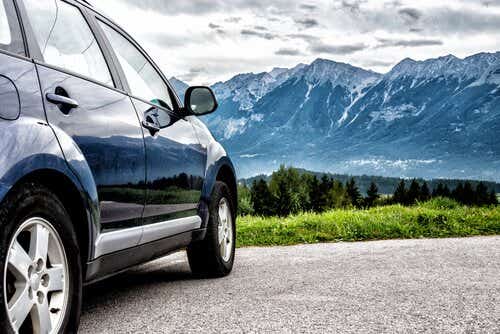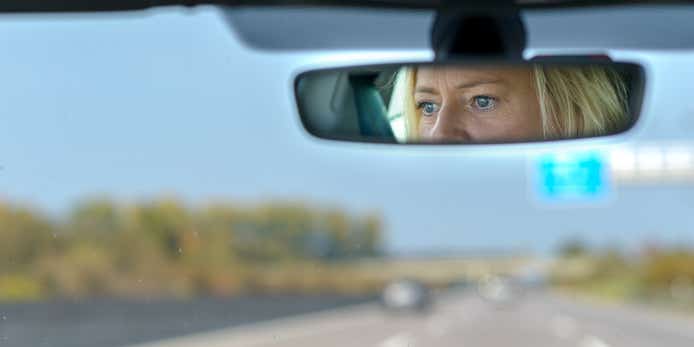What is low mileage car insurance?
How much you use your car is one of the factors that insurers use when calculating motor premiums. So if your annual mileage is lower than average, you might be able to save money by taking out an insurance policy that is specifically designed for low or limited mileage.
The policies include pay-as-you-go insurance and black-box car insurance, both of which link premiums closely to the time you spend on the road. Other types of low mileage car insurance include classic car insurance.
Compare car insurance quotes
Comparing quotes is faster and easier with Uswitch
Is car insurance cheaper if you drive less miles?
The time you spend on the road is an important factor for inusrers when calculating your car insurance quote. Because insurance is based on risk factors, the greater the distance you travel every year, the higher the chances of you being involved in an accident.
This is why insurers ask you to give a figure for expected or typical annual mileage on your insurance application. In general, the lower this figure, the less you are likely to pay for cover.
However, some insurers may take the view that drivers who don’t use their cars much could lack valuable experience and therefore be more at risk of being involved in an accident.
This can offset – at least partly – the benefit of being a low-mileage driver.
What’s considered low mileage?
The average mileage for a driver in the UK currently stands at 6,600* miles a year. If you drive significantly less than this, you are likely to be considered a low-mileage driver.
However, motorists who genuinely have an annual mileage that is much lower than average can face a problem. Because insurers have evidence that some policyholders deliberately understate their mileage in order to cut costs, they can be suspicious when applicants provide particularly low mileage figures.
In some cases, this can result in premiums being based on a higher and supposedly ‘more realistic’ mileage figure.
*Uswitch data. Q4 2024.
How to estimate your mileage
If you don’t keep track of your typical mileage, if can be tricky to provide a figure on your annual insurance application. But it is important to give as accurate a figure as you can. If you overstate your mileage, you could end up paying too much for your policy. But if your estimate is much lower than the actual figure, you could risk having a claim rejected on the basis that your application contained false information.
If you have regular MOT checks on your car, the MOT certificates should give a total mileage figure for your vehicle. This enables you to calculate the distance covered in the 12 months from one MOT to the next. Also take into account any changes in your vehicle usage. For example, if you’ve started commuting to a workplace that is nearer your home, this will reduce your annual mileage.
Compare car insurance quotes
Comparing quotes is faster and easier with Uswitch
What are the different types of low mileage car insurance policies?
If you are a low-mileage driver, you might be able to pay less for insurance by taking out a policy that is better suited to limited-mileage drivers.
Pay-as-you-go insurance
This option – also known as pay-per-mile insurance – uses a tracking app on your mobile phone or a small device in your vehicle to work out when you’re at the wheel. Pay-as-you-go car insurance records exactly how many miles or hours you cover, and uses this data to set premiums.
Black-box car insurance
Also known as telematics car insurance, this involves a GPS-enabled device being installed in your car to record data about your driving. As well as the number of miles you cover, black-box policies typically record your speed, acceleration and braking, and the time of day the car is being used.
Black-box policies can be especially suitable for young drivers, who tend to face higher premiums as they are considered higher risk. By allowing insurers to record their driving behaviour, they can demonstrate they are careful motorists and therefore get lower insurance costs.
Classic car insurance
If you’ve got a vehicle that is at least 10 years old and valued at over £15,000, it could be defined as a classic and eligible for classic car insurance. This kind of policy is relatively inexpensive because the type of motorist who buys it tends to be experienced, careful and unlikely to do too many miles a year.
Temporary car insurance
Also called short-term car insurance, this kind of policy can suit drivers who don’t need a car all year round, and who might be using a vehicle for a limited period only.
Who can benefit from low mileage car insurance?
Low-mileage car insurance can be suitable for drivers who are using their cars less for some reason. Limited-mileage cover might be the right option for senior drivers, for example if you have retired and no longer need to use your vehicle to travel to work every day.
At the same time, if your household has two cars, you may decide to get low-mileage insurance for the vehicle that you don’t use as much.




